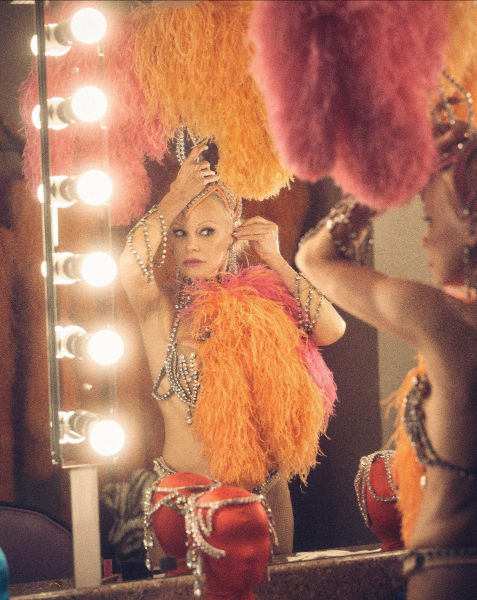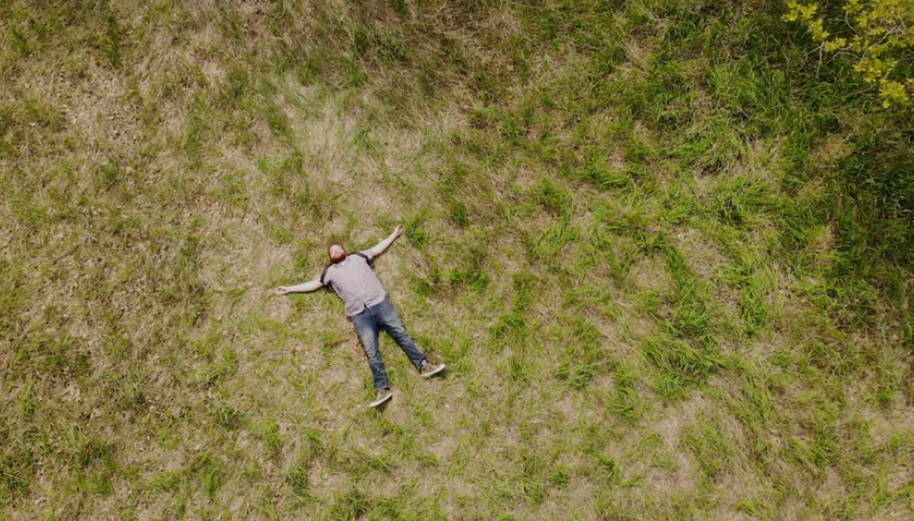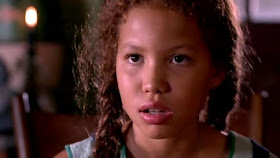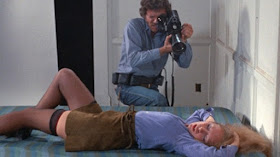Coverage of the Seattle International
Film Festival and year-round art house
programming in the Pacific Northwest.
Kathy Fennessy is President of the Seattle Film Critics Society, a Northwest Film Forum board member, and a Tomatometer-approved critic. She writes or has written for Amazon, Minneapolis's City Pages, Resonance, Rock and Roll Globe, Seattle Sound, and The Stranger.
Member: IBEW and SAG-AFTRA.
Friday, November 29, 2024
Gia Coppola's The Last Showgirl with Pamela Anderson and a Down-to-Earth Dave Bautista
Tuesday, November 26, 2024
Cucalorus 30 Dispatch #3: AJ Goes to the Dog Park, Anna Comes Home, Duino, Familiar Touch
Saturday, November 23, 2024
Cucalorus 30 Dispatch #2: David Fortune's Astounding Directorial Debut Color Book
COLOR BOOK
(David Fritz Fortune, USA, 2024, 115 minutes)
Every once in a great while I'll see a festival selection so accomplished that afterward I'll find myself shifting from elation to doubt. Instead of trusting my instincts, I'll wonder if it was really that good or if I was just caught up in the festival haze that makes everything seem better than it will in the cold light of day outside a homey venue like Jengo's Playhouse. Cucalorus, after all, is about good vibes.
I've had a few days to think about it--and to see other films--and Atlanta filmmaker David Fortune's directorial debut, Color Book, is just that good.
The film started out as Us, a 2022 black and white short funded by Netflix. At the Q&A with poet and community organizer Omari Fox, Fortune said that after he wrapped the short, he wasn't finished with the two characters and their relationship, and wanted to develop the premise in more depth.
Color Book focuses on a day in the life of a suddenly-widowed father and his 11-year-old son who has Down syndrome, but we get to know them better in the feature, which was recast in a way that lifts the film from good to great, and not because there was anything wrong with the original cast.
In the short, a father teaches his son how to play baseball and in the feature, a father tries to get his son to a baseball game, but Lucky (A Thousand and One's Will Catlett) finds himself facing every kind of obstacle in trying to do a simple kindness for Mason (newcomer Jeremiah Daniels).
Lucky is a regular guy, and not a hero, and yet it becomes a kind of hero's quest. While watching the film, I found myself so invested in the world Fortune constructed that I didn't think about other films, which is the ideal situation. Not until it was over did I realize that the story, bolstered by the black and white stock, plays a bit like 1948's Bicycle Thieves. Fortune didn't mention it as an inspiration, but he has created a work of lyrical neo-realism as sure as the pioneering Vittorio De Sica; one specific to the post-millennial United States, particularly the South, rather than postwar Italy.
The sense of place is as strong as the development of the characters, including the people they meet along the way. It is, in other words, a love letter to Atlanta, specifically Black Atlanta. Fortune doesn't glamorize his city, but everyone Lucky and Mason meet is Black. When they act in ways that threaten to derail Lucky's quest–let alone his very guardianship--it isn't out of meanness or spite. They're trying to do the right thing as they see it, just as he is, but during one unguarded moment on the train, he closes his eyes for some much-needed rest only to open them and find Mason gone.
I won't say much more, but even if you think you know how Fortune is going resolve things, he directs the sequence as masterfully as the most nerve-wracking thriller, but without the aid of rapid-fire cuts or a booming score.
Though the film isn't slow per se, the director creates several opportunities for audiences to breathe. In that sense, I was reminded of Barry Jenkins's Oscar-winning Midnight; a different film in many respects, except for the focus on Black manhood, but Fortune also provides space for contemplation with brief abstract sequences--the way Lucky might see movement out of the corner of his eyes--and closeups on objects invested with meaning, like the beads Mason used to string into necklaces with his mom.
Dialogue is there as it needs to be, but never as exposition. Catlett, therefore, has to do a lot with his face and his body, and he has a very expressive face.
He reminds me, in some ways, of actor/director Vondie Curtis-Hall, and I mean that as a compliment. Catlett always shows what's going on, and the reasons are never hard to discern, but Lucky offers no explanations, and nor are they necessary. Form follows function since he's a soft-spoken man, except when he's angry, and he never says any more than he needs to.
If Lucky's sense of humor is in short supply, he isn't without one, and he does enjoy moments of joy, like in a tooth-brushing scene with his truculent son, but then he's in mourning, even if he never says so. The trick for both actor and director was to make him into someone we would want to spend time with rather than someone for whom we feel pity or someone with an aura so dark that it becomes off-putting, no matter how understandable.
Lucky hasn't just lost his wife–and Mason hasn't just lost his mother–but he has to figure out how to be a single father, and that isn't something for which happily married people plan, especially when the loss is unexpected.
Securing transportation is at the crux of Lucky's quest. With no workable vehicle, he meets with an under-the-table dealer who has two cars on offer, a beater for $1,500 and another in better repair, but for $2,400. Plus, the latter isn’t available at the moment, and Lucky has a baseball game to get to in a limited span of time, so he goes for the beater, which results in one of the film's lovelier moments: a father driving his son while Roy Ayers' 1976 vibraphone-saturated single "Everybody Loves the Sunshine" wraps the duo in its warm embrace. Dabney Morris's subtle score, as a whole, blends in well with the mood of the film, in addition to the song's jazz-inflected flavor.
Somewhat off-topic, but when I think about Roy Ayers, I think about his son, Nabil Ayers, a former Seattle citizen and music industry player, who was largely estranged from his father while growing up, and wrote about it in his 2022 memoir, Everybody Loves the Sunshine. Knowing that backstory makes the song more meaningful, whether intentional or otherwise. With all due respect to the jazz-funk pioneer, Lucky is not that father. He's present.
Color Book, as a whole, is both surprising and not. I wasn't surprised when the beater breaks down; it's also one of the few times Lucky gets angry. Not in an abusive way, but the anger that he releases isn't just because he wasted $1,500 and might not get to the ballpark on time, but because he lost his wife. You can see from the look on his face, especially whenever he turns away from Mason, the fear and anger lying beneath the surface.
Around this point Fortune reveals how Tameeka died, and it connects with what he has already shown in ways I didn't anticipate. Previously, he had included a sequence in which her friends remember her at the grave site, so he allows us to get to know her more through their thoughts and remembrances than through Lucky's, and we learn that her giving, affectionate nature was a blessing to all her knew her, and not just to her immediate family.
The ending is also unexpected, not so much because of the game, but because of a dinner Lucky and Mason share in a diner. Beyond the beads, which we see Tameeka and Mason stringing together in the prologue, other totems for father and son include waffles, which they make in the opening sequence; white balloons, which they bring to her grave; and Mason’s crayons and coloring book, which gives the film its title. Two of these things converge at the diner as Lucky and Mason put their worries aside for an hour to enjoy a good meal and the company of a warm-hearted waitress who provides, temporarily, the mothering the men have been missing.
I haven't mentioned it until now, but Color Book never uses the term Down syndrome. We know what we know; Fortune doesn't need to spell it out.
He doesn't define Mason by his characteristics but by his character; who he is as a unique individual, rather than the representative of a genetic condition, and it's how his father sees him: as a person and not as a problem.
The people they meet also accept Mason for who he is; conflict arises at the Marta station when it appears that Lucky isn't an adequate father–or might not be the boy's father at all.
At the Q&A, Fortune says he spent time with the families of children with Down syndrome. He put in the work, and he found a fine foil for Will Catlett in Jeremiah Daniels, who at times missed his sister as much as his character misses his mom.
If Catlett has to act, which he does beautifully, Daniels had to be in the moment with him at all times. I wouldn't say that that isn't acting, but Fortune directed him in a different way, and let him have moments to himself when he needed them, no matter how much it stressed the rapidly-shrinking budget--in a sense, he guided more than directed the boy.
On the surface, Color Book is built around a simple premise. Anyone could follow the story line, but the complicating factors make it a richer, more resonant experience, and without Fortune's sure hand it could have veered into sentimentality or worse. It's a love letter to Atlanta, to fathers (single or otherwise), to children with (and without) disabilities getting the love and care they need, and for Black people everywhere looking out for each other--in ways the government and white society have frequently failed to do--but it isn't a problem picture any more than Mason is a problem child.
The film doesn't currently have distribution, but I have faith it will find a good home before too long. There are important films–films that can literally change lives–and then there are entertaining or moving films, but these things don't always come together as well as they could. Color Book covers all three bases.
For all the praise due Fortune and his collaborators, including DP Nikolaus Summerer, the film come down to the relationship between actor and director, and not just to actor and actor, and Will Catlett's performance is so lived-in at every turn that I was reminded of the great Black films to which this one bears comparison: Michael Roemer's Nothing But a Man with Ivan Dixon and Charles Burnett's Killer of Sheep with Henry Gayle Sanders.
Times have changed since the 1960s and 1970s, and Fortune's film is more technically adept--Killer of Sheep started out as a student film, after all--even as he made it on a very modest budget. I mean no disrespect to the fine filmmakers that came before him, but it's a noticeable difference.
What matters most is that he has made a film that's just as powerful. I rarely describe anything as perfect, especially anything as subjective as film, but Color Book is as close as I can imagine. It works on every level, and it's as uplifting as it is heartbreaking. Only time will tell for sure, but I believe David Fortune has made a classic–and possibly even a masterpiece.
I'll add the trailer as soon as it becomes available. Fortunately, it's easy to catch up with David Fortune's short, which you can find above. I'll also update as more opportunities to see the film arise, especially in Seattle.
Images from The Atlanta Voice (Will Catlett and Jeremiah Daniels / photo credit: Nikolaus Summerer), Netflix (Jarvis W. George and Dylan Fox in Us), Mubi (Lamberto Maggiorani and Enzo Staiola in Bicycle Thieves), the IMDb (Mahershala Ali and Alex Hibbert in Moonlight and Catlett and Daniels), and the Tribeca Film Festival (Lucky in an unguarded moment).
Thursday, November 21, 2024
Cucalorus 30 Dispatch #1: Actor/Director Alexi Wasser's New York-Set Sex Comedy Messy
If I appreciate an organization or an event, and they're celebrating a major milestone, I can't resist recognizing or celebrating with them in some way.
To that end, Northwest Film Forum will be celebrating their 30th anniversary in 2025 (I'm on the board). It's hard to keep an arts non-profit going for that long, and this was definitely a rebuilding year for NWFF, so kudos to both organizations for staying hyper-focused and sufficiently passionate about personal projects from a diverse array of voices to withstand the headwinds of the pandemic, the streaming revolution, and other obstacles.
MESSY
(Alexi Wasser, USA, 2024, 90 minutes)
The first film I saw was Alexi Wasser's Messy, the opening night selection. Wasser, 43, who worked as an actor in Los Angeles for over 20 years, moved to New York in the wake of the pandemic, got involved with a series of highly problematic men, and made a sex comedy about her experiences. She was on hand to introduce and answer questions about the film.
In her directorial debut, Wasser's Stella ends up working on an essay about her experiences for editor Mario Cantone, so art imitates life twice over.Considering that she was operating on a tiny budget, Wasser managed to cajole a number of notable comedic actors to appear in the film beyond Cantone--who fully engages with the madcap spirit of the thing--including Thomas Middleditch, Adam Goldberg, and Ione Skye. I would imagine that they all worked for scale, so I appreciate their willingness to lend a hand, and they're all quite game.
Unlike, say, Luca Guadagnino's Challengers, which I just watched the night before, Messy isn't timid about sexuality and nudity (you only see Josh O'Connor's backside in the former). The talk is quite frank, and Wasser is frequently quite nude. The film could've used a little male nudity, though I feel that way about many films; especially sex comedies and erotic thrillers.
I'm not alone. As Zola filmmaker Janicza Bravo explained during a conversation with Wasser for Interview, "I just have a rule that if you're going to show me ladies, I want to see boys... I want nude parity because a man's chest is not a woman's breast, right? So I want nude parity."
Messy is currently seeking distribution, and I'm certain it will find it--an opening night berth at Cucalorus can't hurt. Comedies, independent or otherwise, are a tough sell for me, but this one has a lot of laughs and the audience had a fine time and asked a lot of questions. Some viewers are sure to find the self-absorbed Stella a bit much–she's "messy," after all–but Wasser is a very engaging performer with a facility for rapid-fire dialogue.
Her inspirations were all over the map, and if you like any of these films or TV shows, Messy might be up your alley: Sex and the City, episode 1.3 of Horace and Pete for the Laurie Metcalf monologue, since she begins her film the same way–she apologized for citing a Louis CK production–An Unmarried Woman, Party Girl with Parker Posey, and Richard Brooks' 1977 Looking for Mr. Goodbar.The latter was definitely a surprise, since it’s a cautionary tale about a woman (Diane Keaton) seeking male companionship in all the wrong places–I read Judith Rossner’s 1975 potboiler in junior high–but like Theresa, Stella does end up sleeping with several of the men she meets in bars, so I get it.
Coda: Messy made John Waters' best movies of 2024!
Cucalorus runs from Nov 20-25, 2024; most screenings at Thalian Hall, Thalian Black (on the upper level), and Jengo's Playhouse, with a variety of colorful happenings taking place around downtown Wilmington. As these films start making the rounds and/or hit streaming, I'll update this post.
Messy image from New/Next Film Festival; all others by me.
































.jpg)








